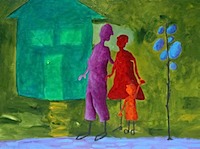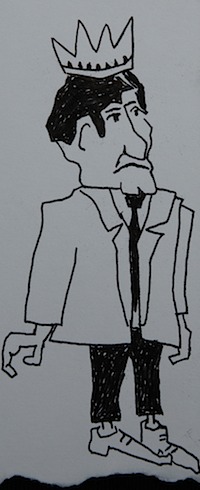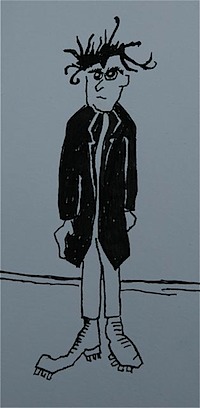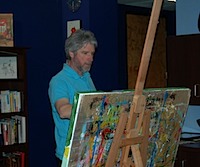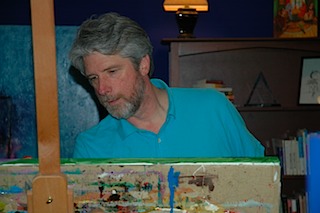I was a young graduate student studying counseling psychology when I realized that I wished I had gone to art school. This was something I'd known about myself since high school--that I was passionate about art--but I buried this dream because of self-doubt, shyness and a general lack of personal presence. Once in graduate school, and growing up, I recognized my mistake and that I loved the field of psychology and helping people. I was practical enough, though, to know that it would be a mistake to abandon my studies for a career in the oh-so-stable field of fine art. I also realized that, as a therapist, I would be encouraging people to live authentic and genuine lives and that I'd be a hypocrite if didn't first lead my own genuine and authentic life. I resolved then, at the age of 24, to teach myself to paint. I bought three tubes of paint, one brush, and a large piece of paper. I didn't know where to start and I was scared. Creativity is challenging. I drove my new friends around in the back of my car for three weeks until I mustered up the courage to just make a mark on paper. Since then I've been making art almost every day. I've taken a few classes here and there, but mostly I just followed my artistic drive and, because I'm a rabid consumer of books, museums, conversations and video, I have what I consider to be a degree in art that is at least an art-school-equivalent . My abilities have grown is such a way that the only motivation I have is to create a painting that is original and communicates a fresh idea. Not being formally trained has really worked for me in that i've never been encumbered with centuries' worth of art 'rules'.
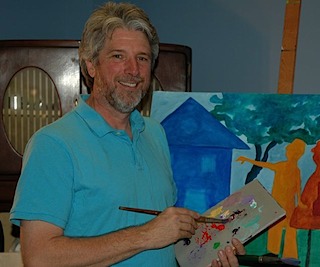
My paintings are about relationships, communication, growth and development. And also about color. I want to energize a room with color combinations and design--to demand your attention and direct you to the feelings of color and subject. This is what Joseph Campbell called "aesthetic arrest." I want my work to start conversations. Artists do what therapists do: They realize that a lot of good answers are really just good questions, combined with engaging dialogue.
As a therapist, my specialties lie in treating children and teens and in helping creatively oriented adults.
Click here to go to Robin Walker's Psychotherapy Website.
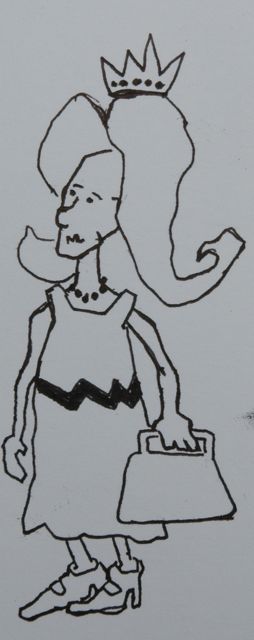
Being both a therapist and an artist is a little tricky. As a therapist, I am other-oriented, always checking myself for countertransference issues, careful to help my client with their feeling and lives. As an artist, all that matters is my viewpoint. Making sure that I'm staying true to my inner voice and creative spark. This disparity between inner and outer, I and thou, listening and speaking, etc. can sometimes be tiring, but is also inspiring. As a therapist, I am constantly in touch with the human drama in a very real way. This is a wealth which often makes its way into my imagery.
